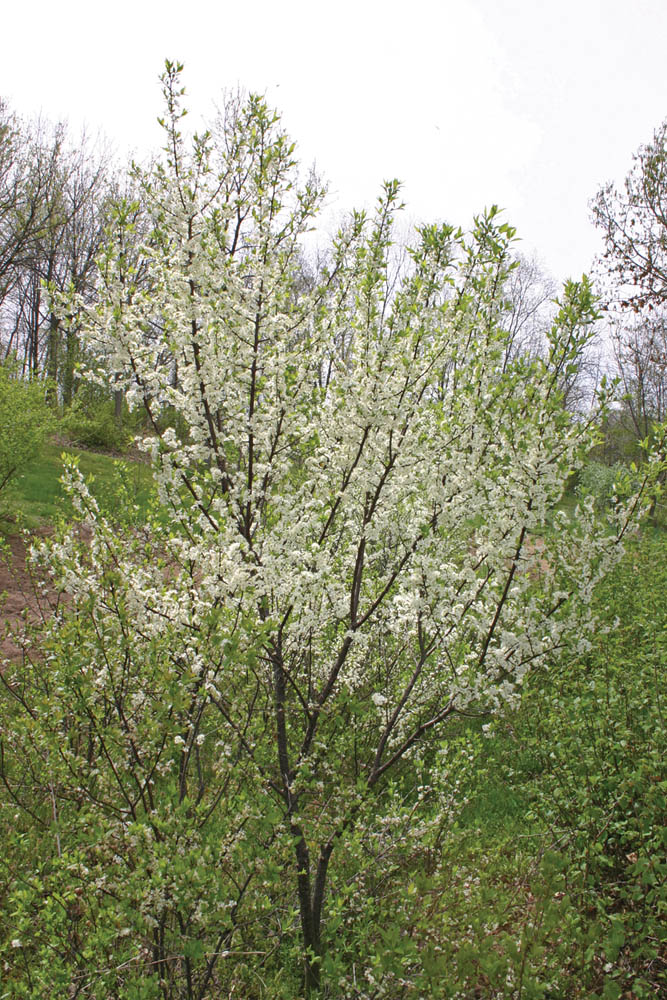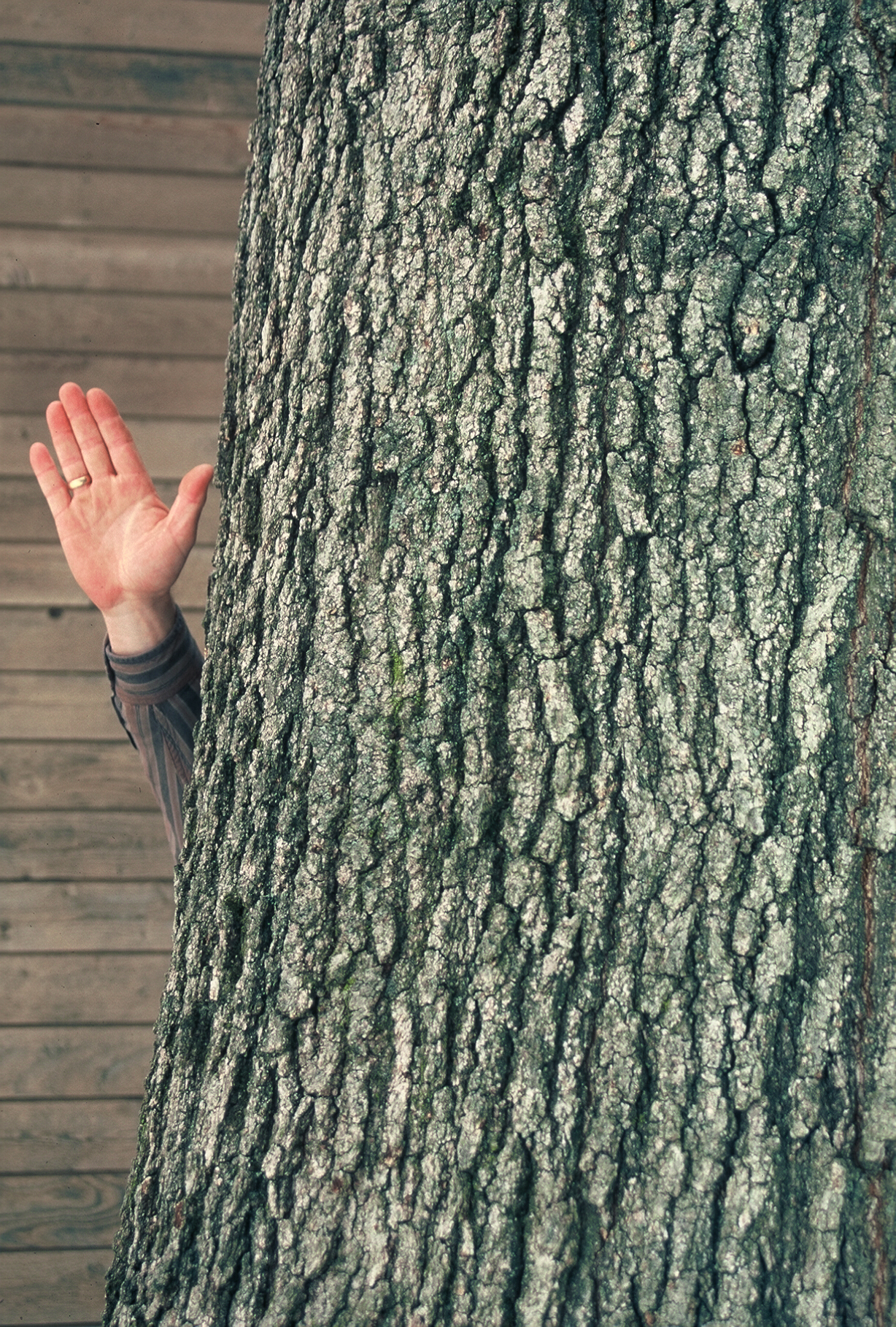



'New Yorker' Plums-Dense Colony forming Selections of Beach Plums and American Plums natural hybrids found in the wild. Variety "Baby Blue"
I received these seeds many years ago from a seed company that had gotten ahold of what was considered a wild population of plums that were thought to be a cross between American plum and beach plum. Although the ranges overlap, the flowering of these two distinct species do not overlap to any degree. But of course it does happen and under the right conditions the plants will hybridize naturally. "New Yorker" does represent this wild form of plum that shares the characteristics of both of these common wild plum species.
Much to my surprise when I put out the plants and fruited them, the intermediate characteristics were very distinctive and different than all the other dozens of Dunbar plums I grow. They have a strong stoloniferous tendency of the American plum along with a smaller fruiting beach plum. This combination is critical if you want to create hedgerows of wild plums. You need plants that are very vigorous that can integrate with other plants quickly. "New Yorker" does that.
Fruiting begins in the 4th year from seeds. Plants produce all along the branches as well as short spurs on the trunks. You can easily find heavier fruiting selections and then use the stolons for out planting. This would allow you to develop cultivars that are easy to root as well as heavier fruiting types. From seed you could create a plum hedge effect that would be a self reproducing colony capable of replacing itself as the mature trunks die off after 15-20 years.
The tart bright red and blue plums have a thick skin and can be eaten fresh or cooked for jam and jelly. The skins have some astringency but not overbearing like the American plum. Fruit size runs from 1/2 inch to 1 inch in size.
"Baby Blue" Selection of the New Yorker plum with clean fruit, heavy fruit set and delicious tart flavor. The skin is not as astringent as the American plum. Similar in many ways to beach plum in size and color, Baby Blue is an upright broad spreading tree with a solid fruit set. Unlike other larger dunbarii plums in this group, this is by far the heaviest bearing and has the cleanest fruit without spray. This selection carries the load on a single trunk with a wide vase type growth habit. One of the best selections in the beach plum class at my farm and the best seedling from this batch of trees as far as yield and flavor goes. When you order the seeds, you can request the scion wood at check out under comments if you desire it for clonal reproduction. Scion wood is shipped in the winter in January and February.
To germinate the seeds: Seeds have been cleaned and stored dry but not overly dry. Add moist peat moss to the seeds and store at room temperature for days. Then put in the refrigerator at 38F to 42 F. Store for 90-120 days. Some sprouting and cracking of the shells may occur after 60 days. Other seeds will not sprout the first season so do not throw out the seeds. After 90-120 days take out the seeds and put at room temperature. Seeds will sprout over a period of a month. You can pluck them out and plant in well drained media. Careful not to plant too deep as this will cause damp off.
| Plant Specs |
| Genus & Species |
Prunus americana x maritima |
| Hardiness |
-30F possibly more |
| Height (ft) |
5-7 ft. with a width to 3-4 ft. Tends to be a more upright plant with light branching that splays outward. |
| Pollination Requirements |
For good fruiting have several individuals of this same strain within a few feet of each other. Will cross with other beach plums and American plums. Self fertile. |
| Soil |
Does very well in dry sandy soils with low air humidity. Slightly acidic soils ideal. Very good in loam soils too. |
| Climate |
Zone 3-8. Best in cold climates in short seasons. |
| Ease of Cultivation |
One of the easiest plums to establish. Because of its stoloniferous habit, it is one of the easiest hedgerow plums to use and could make it possible to select cultivars based on vigor and fruit production. Has no issues with curculio or diseases of any type. |

